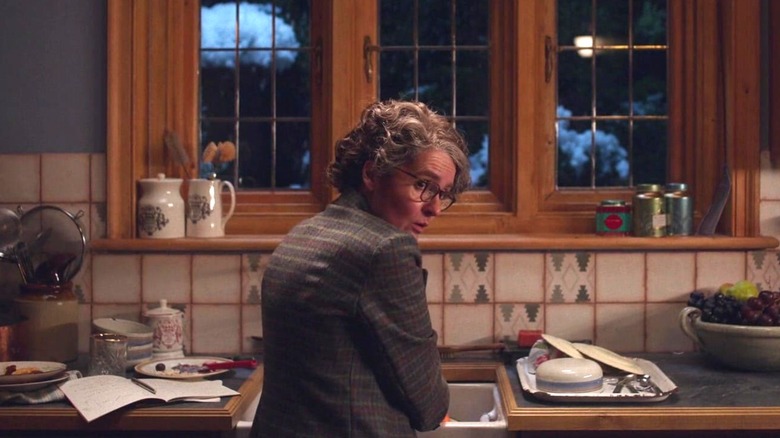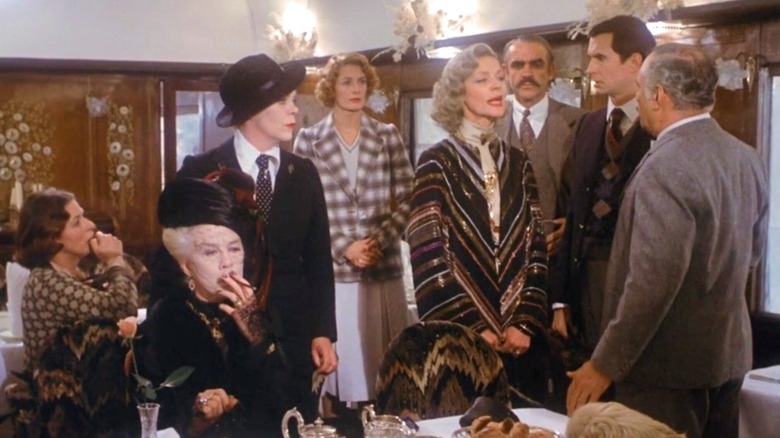We can receive a purchase commission made of links.
The first film adaptation of a story by Agatha Christie was “The Pasating of Mr. Quin” by Leslie H. Hiscott and Julius Hagen, released in 1928. This was only eight years after his first work, “the mysterious matter in Styles,” was published, so it was still quite active when the movies of their stories began to appear. From 1930, Christie also began writing works for the stage (starting with “Black Coffee”), so it was already an empire of the media, years before such a thing had become rigor. From this article, there has been Around 50 official film adaptations of Agatha Christie’s novels And short stories, about 40 television films, not to mention the long-standing television programs “Agatha Christie’s Poirot” (1989-2013) and “Agatha Christie’s Miss Marple” (2004-2014), in addition to a large number of projects in which he is a character, which includes “see” Run “(previously imagined).
Advertisement
Deepen the numerous Radio adaptations of Christie would take too much time here, and it would be insufficient to mention all the murder mysteries that Christie inspired. It was so prolific and occupies such a huge space in the genre of murder-missionary, one would be forgiven for thinking that it represents a majority percentage of it. All counted, She wrote 74 novels and 16 works and published 16 collections of stories. Christie continued writing books until 1973 and died in 1976 at the age of 85.
Of course, because there were so many adaptations filmed of his work, Christie had to sit in a small number of bad. In fact, some of the adaptations were so terrible that his friends warned him to see them. They forbade him to see “The Alphabet Murders” from 1965, saying that “my friends and editors told me that the agony would be too great.”
Advertisement
A 2017 Radio Times He revealed that Christie didn’t have too many kind words for her films in general.
Agatha Christie didn’t like many films based on his works
The Radio Times article indicated that Christie really, In fact He hated the performances of actress Margaret Rutherford, who performed a capricious and comical version of his detective, Miss Marple, in four feature films in the 1960s. He was especially embarrassed by the 1964 film “Murder, Ahoy!”, Saying that he regretted having sold the film rights to the character of Miss Marple. “It was my fault,” she said. “One does things for money, and is wrong to do so, since a part with literary integrity.” Oh.
Advertisement
However, Christie said elsewhere that it was not really Rutherford’s fault. The author’s secretary, cited In Smithsonian magazineHe related Christie’s words when she said: “Miss Rutherford is a good actress. He does not resemble the idea (of Christie) of Miss Marple.” Christie, however, wanted to demonstrate that she had no resentments towards Rutherford, and even dedicated her 1962 story “the crunch mirror from side to side” to the actress.
In your autobiography, titled in a useful way “A autobiography” Christie criticized the cinematographic adaptations of his work in general, disgusted with each one for one reason or another. His most general complaint is that too many filmmakers wanted to make their murder to capricious comedies. Because “The Alphabet Murders,” the one that prevented him from seeing, the producers originally wanted the comedy actor Zero Mostel to play his detective Hercule Poirot, an idea that Christie rejected. The filmmakers were with Tony Randall, which seems to me a step.
Advertisement
Christie did not even like The broad adaptation of 1974 of “Murder on the Orient Express” Directed by Sidney Lumet. “I was very well done,” he said, “except for an error that I can’t find in my heart.” He hated that Albert Finney, who played Poirot, worried comically about his strange and huge mustache. Christie hated how “fun” it was.
He also bothered him that some saw his dark deaths of death and murder as capricious and welcoming. They are not. Read them and you will find anything more than shadows.







